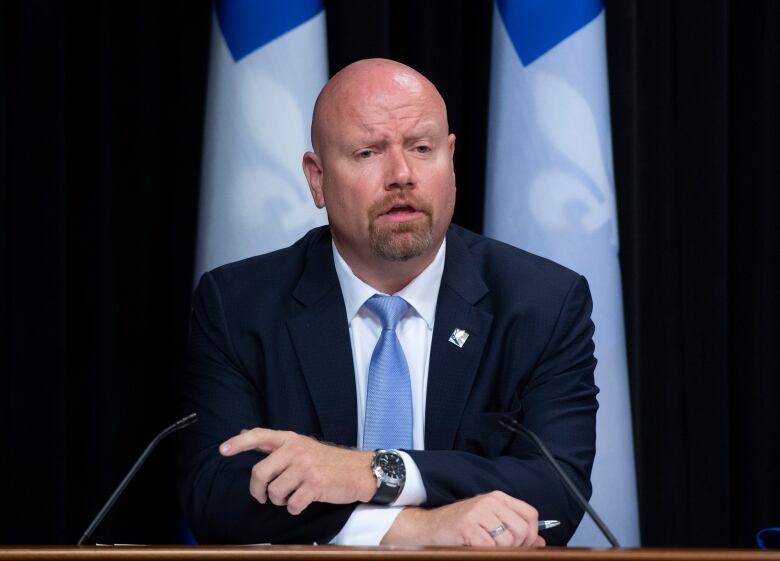Manawan community looks to UN for justice after Joyce Echaquan's death
Community hopes international attention will pressure Quebec

The Atikamekw community of Manawansays it willcall on the United Nations (UN) to examine the reality of Indigenous women in the wake of Joyce Echaquan's death.
In an interview with Radio-Canada's Toujours le matin,Sipi Flamand, vice-chief of the Manawanband council said that a request will be submitted Monday, to various UN bodies, including the special rapporteur on the rights of Indigenous Peoples.
"I believe it's at that point now, to put pressure on an international scale to make the systemic racism experienced by Indigenous people and Indigenous women in Canada known,"Flamand said.
If the provincial government had adopted Joyce's Principle, he says, turning to the United Nations might have been unnecessary.
Joyce's Principle was published followingthe death of Joyce Echaquan, at the hospital in Joliette, Que. in September 2020. Echaquan died soon after filming hospital staff disparaging her as she cried for help.
It was writtenby the Atikamekw Council of Manawan and the council of the Atikamekw Nation to make sure Indigenous people get equitable access to government health and social services.
The federal government is providing $2 million to the Atikamekw Nation and Manawan First Nation to implement the principle.
But the Quebec government has balked, saying the manifesto calls for the acknowledgment of systemic racism in the province, something the Coalition Avenir Quebecgovernment insistsdoes not exist.
Still, Indigenous Affairs Minister Ian LafreniresaysQuebec's stance will notprevent the provincefrom applying important points outlined in the document.
But Grand Chief Constant Awashish of the Atikamekw Nation says recognizing systemic racism isn't a semantic debate.
"If we want to address the situation in a proper way, we have to call it the right way," Awashish said. "It doesn't mean we're saying the Quebec population is racistI hope one day they recognize it's not scary saying it. It's just helping both parties and the general population for reconciliation."
Quebec announces major funds for Indigenous victims of crime
The Quebec government announced today it will put $19.2 million toward improving paralegal services for Indigenous victims of crime.
This comes two years after the release of the Viens Commission's final report.
The funding is part of a $200-million budget from the J'ai Espoir(I have hope) campaign launched by the ministry in response to the commission's recommendations to improve public services for First Nations and Inuit people in Quebec.
Lafreniresaid part of the goal is topayspecial attention to victims who are women.

"The Indigenous population needs to be supported throughout the judicial process," Lafrenire said. "We want to reinforce Indigenous communities' abilityto offer services in their language and services that are adapted to them."
"We want to ensure the justice system is not an additional source of violence in the life of the Indigenous people."
Quebec Justice MinisterSimon Jolin-Barrette said the government will be hiring interpreters and intervention workers from Indigenous communities to provide additional support to victims.
"We want to be clear that these persons that will be hired in the different groups will help the Indigenous community face the judicial system."
Jolin-Barrette says the goal is to give Indigenous people the tools and resources to understand how the justice system works if they become involved in a criminal procedure.
Michle Audette, former president of the Native Women'sAssociation of Quebec, says while she is pleased with the plans to hire Indigenous interpreters, the government has left many questions unanswered.
"As a victim, where do I call? Who can pay my lawyer? Who can pay my psychologist or my elder or my counsellor because I want to go through this process for my healing?" Audette said.
"It is a step where we are working for the well-being of our people, but there are many other calls for action from that report that should also be considered."
with files from Radio-Canada












_(720p).jpg)


 OFFICIAL HD MUSIC VIDEO.jpg)
.jpg)



























































































